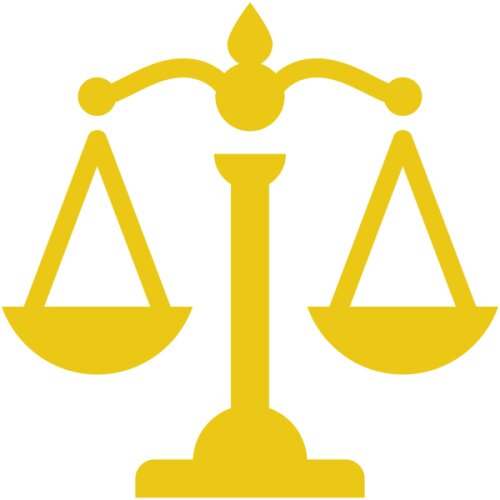Best Labor Law Lawyers in Newcastle
Share your needs with us, get contacted by law firms.
Free. Takes 2 min.
List of the best lawyers in Newcastle, South Africa
About Labor Law in Newcastle, South Africa
Labor Law in Newcastle, South Africa, primarily revolves around the rights and obligations of both employers and employees meant to promote fair labor practices. It encompasses regulations concerning employment terms, workplace conditions, minimum wage, collective bargaining, and dispute resolution. The framework in South Africa is heavily influenced by statutes such as the Basic Conditions of Employment Act (BCEA), Labour Relations Act (LRA), and the Employment Equity Act (EEA), aiming to protect workers' rights and foster equality in the workplace.
Why You May Need a Lawyer
There are several situations where individuals or businesses may require legal assistance in Labor Law:
- Disputes over employment contracts or wrongful dismissal cases
- Disagreements regarding wage or working conditions
- Issues related to unfair labor practices or discrimination
- Navigating collective bargaining and union-related matters
- Handling cases of workplace harassment or violation of health and safety regulations
- Assisting with retrenchment processes and severance packages
Local Laws Overview
Key aspects of Labor Law relevant to Newcastle, South Africa, include:
- Basic Conditions of Employment Act: Mandates minimum standards for working hours, leave entitlements, and termination of employment.
- Labour Relations Act: Regulates the rights of employees and employers, including organizational rights, dispute resolution, and collective bargaining.
- Employment Equity Act: Seeks to eliminate unfair discrimination and promote equitable representation across various employment levels.
- Occupational Health and Safety Act: Ensures safe working environments through compliance with health and safety standards.
Frequently Asked Questions
What is the maximum number of working hours per week?
In accordance with the Basic Conditions of Employment Act, the maximum is generally 45 hours per week, excluding overtime.
Are employers required to provide maternity leave?
Yes, employees are entitled to at least four consecutive months of maternity leave, as stipulated by the BCEA.
What is fair dismissal, and on what grounds can it occur?
Fair dismissal must be based on valid reasons such as misconduct, incapacity, or operational requirements. A fair process must also be followed.
How are employee grievances typically addressed?
Grievances are usually resolved through internal procedures, and if unresolved, through mediation and arbitration under the auspices of the CCMA.
How does one file a complaint about unfair labor practices?
Complaints can be lodged with the Commission for Conciliation, Mediation, and Arbitration (CCMA) for resolution.
What protections are in place against workplace discrimination?
The Employment Equity Act prohibits any form of discrimination and promotes equal opportunity and fair treatment in employment.
When is overtime pay required?
Employees must be paid at a 1.5 times normal rate for overtime work beyond the normal working hours as per BCEA regulations.
Can employees join a trade union?
Yes, employees have the right to join trade unions for collective bargaining and to protect their collective interests.
What is the process for settling labor disputes?
Labor disputes typically progress from internal resolution attempts to CCMA intervention, and in some cases, to the Labour Court.
What documentation should employers maintain for compliance?
Employers are required to maintain records of employment contracts, wages, working hours, leave, and other contractual terms according to statutory requirements.
Additional Resources
For further guidance, consider reaching out to these bodies:
- Commission for Conciliation, Mediation, and Arbitration (CCMA): Provides dispute resolution services regarding employment relations.
- Department of Employment and Labour: Offers information and resources on employment standards and compliance.
- South African Labour Guide: Provides comprehensive content on labor law issues, case studies, and legislative updates.
Next Steps
If you require legal assistance in Labor Law, the following steps can be beneficial:
- Document all relevant incidents, communications, and evidence pertaining to your case.
- Consult with a qualified labor law attorney experienced in South African employment laws.
- Contact the CCMA or relevant labor body for advice on dispute resolution processes.
- Review your employment contract and company policies regarding your rights and responsibilities.
- Explore potential legal aid resources or community legal clinics if you require cost-effective options.
Considering professional legal aid ensures that your rights are protected and that you are adequately informed about your obligations and entitlements under South African labor law.
Lawzana helps you find the best lawyers and law firms in Newcastle through a curated and pre-screened list of qualified legal professionals. Our platform offers rankings and detailed profiles of attorneys and law firms, allowing you to compare based on practice areas, including Labor Law, experience, and client feedback.
Each profile includes a description of the firm's areas of practice, client reviews, team members and partners, year of establishment, spoken languages, office locations, contact information, social media presence, and any published articles or resources. Most firms on our platform speak English and are experienced in both local and international legal matters.
Get a quote from top-rated law firms in Newcastle, South Africa — quickly, securely, and without unnecessary hassle.
Disclaimer:
The information provided on this page is for general informational purposes only and does not constitute legal advice. While we strive to ensure the accuracy and relevance of the content, legal information may change over time, and interpretations of the law can vary. You should always consult with a qualified legal professional for advice specific to your situation.
We disclaim all liability for actions taken or not taken based on the content of this page. If you believe any information is incorrect or outdated, please contact us, and we will review and update it where appropriate.









